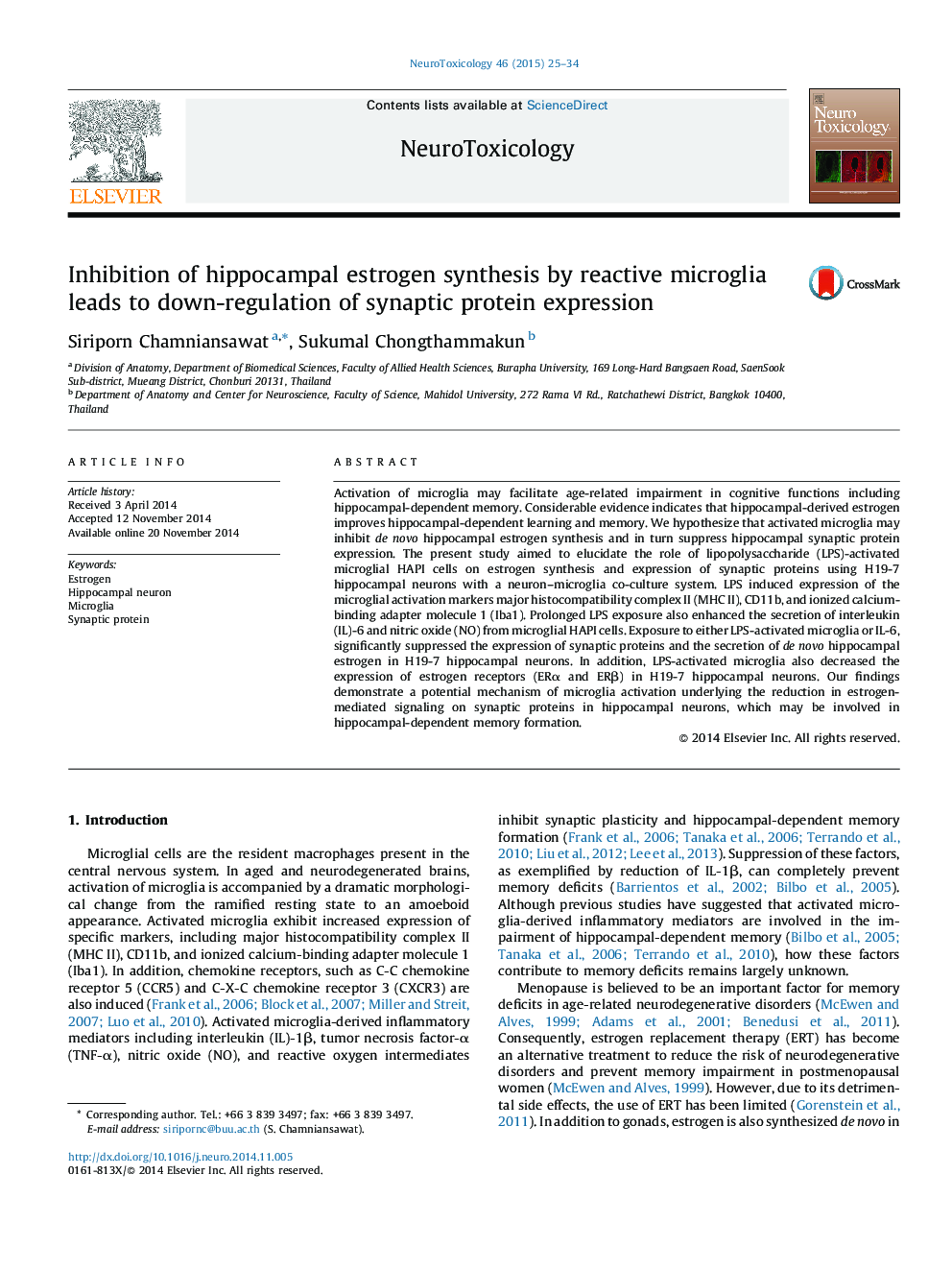| Article ID | Journal | Published Year | Pages | File Type |
|---|---|---|---|---|
| 2589599 | NeuroToxicology | 2015 | 10 Pages |
•Cytokines that derived from LPS-activated microglia inhibit de novo hippocampal estrogen synthesis and in turn suppress hippocampal synaptic protein expression.
Activation of microglia may facilitate age-related impairment in cognitive functions including hippocampal-dependent memory. Considerable evidence indicates that hippocampal-derived estrogen improves hippocampal-dependent learning and memory. We hypothesize that activated microglia may inhibit de novo hippocampal estrogen synthesis and in turn suppress hippocampal synaptic protein expression. The present study aimed to elucidate the role of lipopolysaccharide (LPS)-activated microglial HAPI cells on estrogen synthesis and expression of synaptic proteins using H19-7 hippocampal neurons with a neuron–microglia co-culture system. LPS induced expression of the microglial activation markers major histocompatibility complex II (MHC II), CD11b, and ionized calcium-binding adapter molecule 1 (Iba1). Prolonged LPS exposure also enhanced the secretion of interleukin (IL)-6 and nitric oxide (NO) from microglial HAPI cells. Exposure to either LPS-activated microglia or IL-6, significantly suppressed the expression of synaptic proteins and the secretion of de novo hippocampal estrogen in H19-7 hippocampal neurons. In addition, LPS-activated microglia also decreased the expression of estrogen receptors (ERα and ERβ) in H19-7 hippocampal neurons. Our findings demonstrate a potential mechanism of microglia activation underlying the reduction in estrogen-mediated signaling on synaptic proteins in hippocampal neurons, which may be involved in hippocampal-dependent memory formation.
